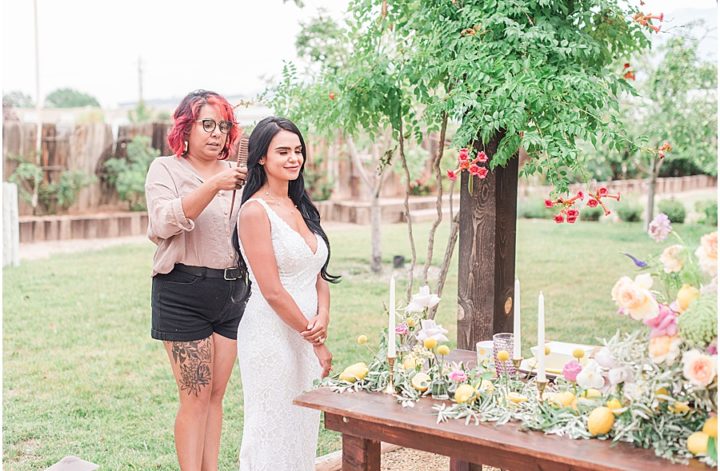Over the years, the responsibilities of today’s groom have definitely changed. Especially, when it comes to who pays for the wedding. Traditionally, the groom would only pay for his tuxedo, the wedding rings, the officiant and his bride’s bouquet. Other expenses may have included groomsmen’s gifts, corsages for his mother and hers and the honeymoon {or minimoon!}.
Meanwhile, his family would pay for the rehearsal dinner and the bride’s family the rest of the financial burden. But the average cost of today’s wedding has soared, with some estimates placing the cost of the “average” wedding at $20,000 or more. This has led to a change in attitudes among engaged couples and quite frankly, it just isn’t always practical to follow tradition.

Nowadays, more couples pay for most of their wedding expenses and receive smaller contributions from their families. When families do help, a greater burden tends to fall on the groom’s family. In some cases, the groom’s family handles not only the traditional rehearsal dinner expenses, but they also cover the cost of wedding services including entertainment for the reception, transportation for the wedding party and photography or videography.
For most grooms, it’s no longer an option to show up to the church ready to wed. Although it’s still typical for brides to oversee wedding plans, more and more men dig into their wallets, handle a range of wedding-related responsibilities and make important decisions. After all, it only makes sense to have both of you involved in decisions like:
- The budget
- The ceremony and reception venue
- The size of the guest list and who will be invited
- The degree of formality for both the ceremony and reception
- Which stores and specific items should be part of your gift registry
- Where you will honeymoon and for how long

Of course, these are just a few of the areas where your involvement could be helpful. You can and should tailor your involvement to match your interests and the needs of your bride. For example, if you’re interested in cars, handle the transportation arrangements. But remember, you have two very important responsibilities at your wedding ceremony that, if handled well, can make all the difference in the world:
- Work closely with the best man and attendants to keep things moving smoothly, including assuring that guests are properly seated, the wedding rings are there and everyone understands the schedule of events and roles.
- Collaborate with your vendors before the wedding. Your bride to be can only keep track of so many things! Let her handle the florist, while you straighten out details with the officiant, for example.
You should recognize that, despite the many distractions, you’re there to be married. The day belongs to you two, and mental and emotional preparation is key to its success.
Whatever expanded role you play in planning and holding your wedding, it will be memorable. And yet another reason for her to love you!




